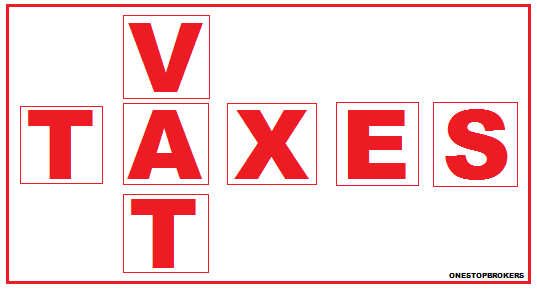Cyprus government mulling reduced VAT for basic necessities

It is unclear how effective government machinations to reduce the VAT on necessary goods will be, following reports on Wednesday that authorities are looking to completely axe tax on items like bread, milk, and baby food.
Commenting on the matter, the finance ministry confirmed news that these discussions were under way with the commerce ministry, but that even if agreed between the two parties they would need EU approval to confirm the rate cuts, as VAT is regulated by Europe.
Speaking on Wednesday, Finance Minister Makis Keravnos said that currently the ministry is considering the reduction of some VAT rates because of a new directive of the European commission that allows such an action and mainly concerns reductions of some rates, but also specific categories of products, which can be reduced to 0 per cent.
“At the moment we are looking at these product categories and the zero rate will concern basic, everyday products, such as milk, baby food, diapers, etc. Within the next few days there will be a final position and the corresponding announcements. All these issues are aimed precisely at the government’s policy to deal with inflation,” Keravnos said.
Asked about the rate cuts, Keravnos said that there are different categories of products, some of which can be reduced up to 5 per cent, some up to 0 per cent, and added that the ministry is examining these issues to be able to formulate the new VAT categorisation for specific products.
Asked whether the EU directive gives some flexibility on the number of different rates, Keravnos said that the new directive provides a degree of flexibility to member states in terms of varying VAT rates.
Meanwhile, speaking to Sigma TV earlier in the day the head of the consumers’ association Marios Droushiotis was doubtful that reductions in VAT would work.
Droushiotis noted that he is not at all certain that the reduction in VAT will reach the consumer for two main reasons.
One, he said, was that proposed cuts being talked about are low, and the other reason is that it is unclear how far they will carry over to the consumer and be enforceable.
He added that as in other cases, the VAT reduction will get lost somewhere along its way to the consumer.
According to Droushiotis, the authorities, if they proceed with the reduction of VAT, should be ready to carry out the necessary checks to see if the measure is implemented.
Earlier, Philenews reported the list is likely to include 10-15 foods and other items considered to be necessities, such as bread, milk, and baby food.
The possibility of temporary VAT reduction on these items to relieve consumers came after the EU Commission informed member states of this option. In fact, some countries have already reduced VAT on a range of food and other products.
Milk, bread and baby food, slated for a VAT reduction down to zero, are currently taxed at 5 per cent. Other products considered for reduction include detergents, fabric softeners, toilet paper, baby nappies, cleaning supplies and adult diapers, with VAT on these items expected to be reduced from 19 to 5 per cent.
The finalised lists will be subject to the approval of Brussels.
The ministry of finance will determine the period for the reduction as it has the task of ensuring the state budget will not be substantially affected.
Mechanisms are being worked out to curtail any profiteering by retailers and ensure that VAT savings will be reflected genuinely in lower prices at the point-of-sale.
As part of his pre-election promises, President Nikos Christodoulides had stated his intention to reduce VAT by decree, on photovoltaics (from 19 per cent to zero), and on children’s items (from 19 to 5 per cent), as well as to raise the tax-free income bracket from €19,500 to €24,500.
The increase in tax-free income is included in the wider reform of the country’s tax system, for which the ministry of finance has commissioned an evaluation.
The recent extensions of electricity subsidy and fuel tax reduction were also efforts to mitigate economic hardship and are estimated to be costing the state €5.96 million.
In late 2022, a similar proposal for fixed prices on certain items had been raised by the then government, following a Greek policy to establish a basket of goods.
The ‘household basket,’ which was introduced similarly in Greece, had been slated to include a weekly guide on the cheapest essential goods available at supermarket, including milk, rice, pasta, bread, the then head of the Cyprus Retail Association Marios Antoniou had told the Cyprus Mail.
Regarding on how the law would work, Antoniou said that every Wednesday the cheapest brand of products from each item category would be announced to consumers, who would be able to include the items on their shopping list.
Source: CyprusMail – Government mulling reduced VAT for basic necessities (Updated)





























